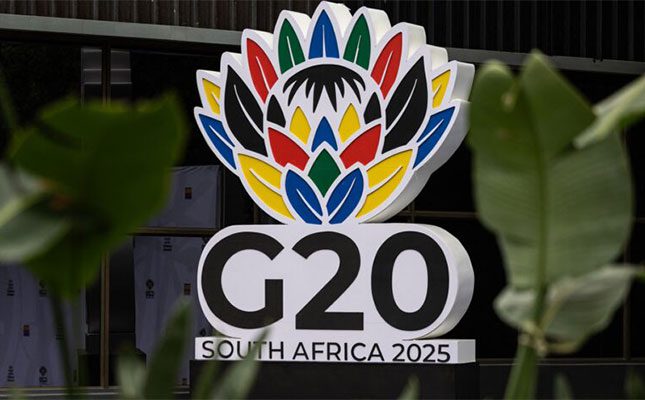
Food security is one of the most pressing issues facing the world. According to the Food and Agriculture Organization of the United Nations’ ‘State of Food Security and Nutrition in the World 2025’ report, between 638 million and 720 million people (7,8% to 8,8% of the global population), faced hunger in 2024.
In Africa, hunger levels are more than double the global average. For South African farmers, these figures matter; they reflect the pressure on production systems, markets, and policy environments that ultimately influence profitability and producers’ long-term sustainability.
The culprit behind these hunger levels is not insufficient production. Instead, global agriculture is being destabilised by commodity price shocks, the speculative behaviour of international markets, the weakening of currencies, and climate-related disasters. These forces drive the cost of inputs up and disrupt export opportunities. They also erode the purchasing power of consumers and thus directly affect producers.
In response to these pressures, South Africa’s G20 presidency has established Task Force Two: Food Security, a dedicated mechanism for analysing the drivers of food system instability and proposing coordinated global and regional solutions.
This task force’s work focuses on three pillars that have direct and practical implications for the agrifood industry:
- To reduce commodity price volatility, which affects input affordability and the prices farmers receive for their produce
- To strengthen regional food systems, creating more stable markets in Africa and reducing reliance on distant, volatile global supply chains
- To advance climate-resilient agriculture through research, coordinated production strategies, and new financing pathways
Regional approach
One of the core streams of research under Task Force Two is the development of regional ‘food baskets’, an African Union-led approach that emphasises complementary production, shared storage, and integrated value chains across borders.
For South African farmers, stronger regional markets could mean:
- Reduced market disruptions caused by global trade shocks
- Greater export opportunities into neighbouring countries
- Better alignment on sanitary and phytosanitary standards
- Stronger resilience in seasons of drought or crop failure
The research also emphasises the need for targeted interventions to increase smallholder farmers’ productivity and resilience, as they produce most of Africa’s food.
Even though South African farmers operate in a mixed commercial-smallholder landscape, the regional approach will contribute to more predictable intra-African markets and improved food availability, which will benefit not only the farming community but the continent’s entire agricultural value chain.
Stabilising prices and markets at the global level
At the global level, Task Force Two is working hand-in-hand with the Financial Stability Board and the UN Conference on Trade and Development to examine how international commodity markets, corporate concentration, and cross-border financial flows influence domestic food prices.
This is highly relevant to South Africa, where:
- Input costs such as fertiliser and chemicals are heavily influenced by global markets
- Currency volatility drives up prices of imported agricultural goods
- Farmers are exposed to international speculative behaviour affecting grain and oilseed prices
Improved global oversight and clearer regulatory standards could help to stabilise markets, improve transparency, and reduce extreme pricing shocks that undermine agricultural sustainability and profitability.
Inter-ministerial task team
All studies undertaken by Task Force Two fed into the Ministerial Communiqué, which was formally presented to South Africa’s Inter-Ministerial Task Team on G20 Affairs. This process ensures government alignment and sector input before the communiqué is submitted to G20 leaders over the weekend.
For agriculture, this step is crucial, as it embeds the sector’s concerns – market stability, climate risks, regional integration, and fair trade – directly into South Africa’s G20 agenda.
Key deliverables expected from Task Force Two are:
- G20 principles on commodity price stabilisation
- Proposed regulatory frameworks for global food and input markets
- Policy priorities to stabilise food pricing and support climate-resilient production
- A monitoring, evaluation, and learning framework to track progress
Task Force Two positions South Africa as a leading voice in building more stable, climate-resilient, and equitable food systems. If its recommendations are adopted, farmers could benefit from more predictable markets, better regional opportunities, and stronger support for adaptation in a rapidly changing climate.
Get trusted farming news from Farmers Weekly in Google Top Stories.
➕ Add Farmers Weekly to Google ✔ Takes 10 seconds · ✔ Remove anytime






